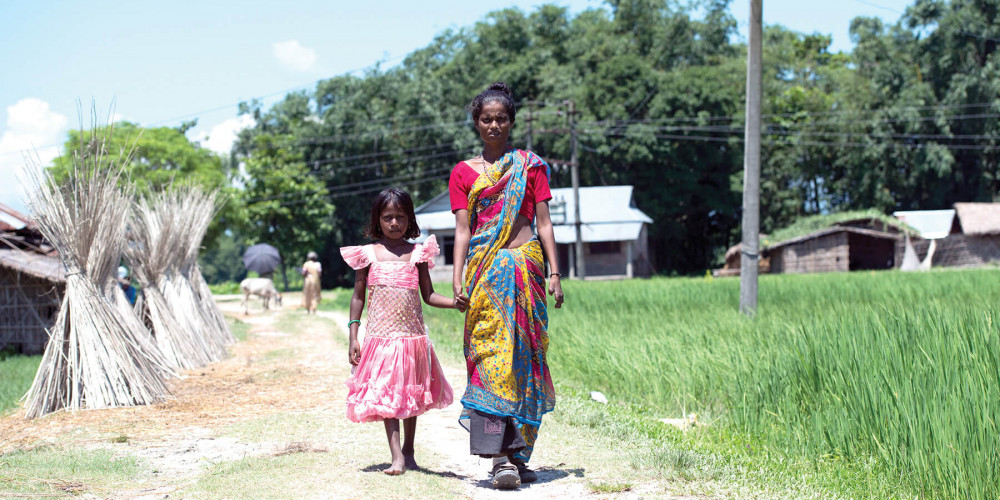KIT Blog
Sabitri and Laxmi
-
 The Leprosy Mission Australia
The Leprosy Mission Australia
- Apr 09, 2016
- India,
- People you have helped
Sabitri married a businessman and left her small village in Southern Nepal. They went to Punjab in India to work and live their new and exciting life together. Shortly after, Sabitri noticed a numbing of her fingers—an early symptom of leprosy. She then started developing wounds on her hands. Her husband encouraged her to visit traditional doctors but they were unable to help her. By the time she visited a modern health centre, she had already started to lose her fingers from complications. Sabitri was finally diagnosed with leprosy and gave birth to Laxmi. Once her husband heard the diagnosis, he left both of them. They haven’t seen him since. Sabitri tried to get help from her husband’s family in Nepal, but they wouldn’t even let her inside the house. They told her to go away.
Once her husband heard the diagnosis, he left both of them.
They haven’t seen him since. So Sabitri returned to her elderly father in Southern Nepal. Things weren’t easy. He’s in his late 70s and was forced to return to work to support them. Sabitri would love to help her father, but no one will employ her and give her a chance. They notice the deformities that she has and wonder whether they’ll get leprosy too. The people in Sabitri’s village look at her suspiciously. The children tease Laxmi and many won’t play with her. She can’t go to school because Sabitri can’t afford to buy her a uniform or schoolbooks. Her future worries Sabitri. Without money she cannot provide her daughter with an education. Without an education her daughter will never escape poverty. It’s a tragically familiar cycle.
But there is hope for this mother and daughter. Leprosy still traps many more women like Sabitiri—mothers who can’t provide their children with proper uniforms and schoolbooks. Your RECLAIM project can help Laxmi attend school and help Sabitri get back on her feet.













